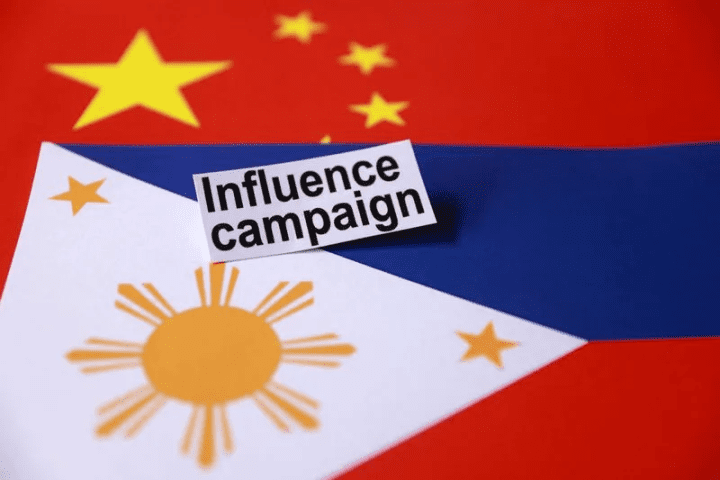Economic sanctions have become the preferred weapon of modern geopolitics, with governments imposing financial restrictions, trade bans, and asset freezes as alternatives to military conflict. While presented as tools to punish bad actors and promote policy changes, sanctions create complex economic consequences affecting far more than intended targets. Understanding who actually profits from these restrictions reveals a surprising reality: sanctions often benefit specific industries, countries, and financial players while ordinary citizens in both sanctioning and sanctioned nations bear disproportionate costs. This analysis exposes the hidden winners in the sanctions economy and challenges conventional narratives about these increasingly prevalent tools of international coercion.
Understanding Modern Sanctions Architecture
Types and Mechanisms of Economic Restrictions
Contemporary sanctions encompass various measures with different economic impacts. Comprehensive sanctions prohibit virtually all economic transactions with targeted countries, as the United States maintains against Cuba, North Korea, and Iran. Sectoral sanctions target specific industries like energy, banking, or defense while allowing other commerce to continue. Targeted sanctions focus on individuals and entities through asset freezes, travel bans, and exclusions from financial systems.
The SWIFT international payment system exclusion represents particularly powerful leverage, disconnecting sanctioned entities from global banking networks and making international transactions extremely difficult. Secondary sanctions threaten penalties against third-party countries or companies conducting business with sanctioned targets, effectively globalizing American and European restrictions by forcing compliance from neutral parties seeking market access in sanctioning countries.
The Scale of Global Sanctions
Sanctions usage has exploded in recent decades as governments discover their political appeal—appearing tough without risking military casualties. The United States maintains sanctions programs against over 30 countries affecting roughly one-third of the global population. The European Union, United Kingdom, Canada, Australia, and other Western nations coordinate sanctions targeting Russia, Belarus, Myanmar, Venezuela, Syria, and numerous other countries and thousands of individuals and entities.
Russia faces the most comprehensive sanctions ever imposed on a major economy following its 2022 Ukraine invasion. These measures include central bank asset freezes, SWIFT exclusions for major banks, technology export controls, energy sector restrictions, and luxury goods bans. The unprecedented scope of anti-Russia sanctions creates a global economic experiment testing whether financial warfare can compel policy changes from a large, resource-rich nation with powerful allies.
The Stated Goals vs. Actual Outcomes
Official Justifications for Sanctions
Governments justify sanctions through multiple rationales. Coercive sanctions aim to impose sufficient economic pain forcing policy changes—abandoning nuclear programs, ceasing human rights violations, ending military conflicts, or implementing democratic reforms. Constraining sanctions seek to limit targeted countries’ capabilities to fund military programs, develop weapons, or project power regionally. Signaling sanctions demonstrate international disapproval without expecting immediate policy changes, satisfying domestic political demands for action.
Multilateral sanctions backed by international consensus theoretically prove most effective by eliminating sanction-busting through alternative trading partners. However, major economies including China, India, and many developing nations refuse participating in Western-led sanctions they view as geopolitical tools rather than legitimate international enforcement. This limited participation creates substantial sanctions evasion opportunities undermining effectiveness while generating profits for countries and entities willing to defy restrictions.
The Track Record of Sanctions Effectiveness
Empirical evidence suggests sanctions rarely achieve stated objectives. Research indicates sanctions succeed in forcing policy changes only 20-30% of the time, with success rates declining for comprehensive sanctions against large economies. Cuba endured over six decades of American sanctions without regime change. North Korea developed nuclear weapons despite extreme isolation. Iran continued regional activities throughout sanctions periods. Venezuela’s government survived despite economic collapse.
Sanctions often produce counterproductive effects including nationalist rallies around targeted governments, humanitarian crises affecting civilian populations, and strengthened authoritarian control as governments blame external enemies for economic hardship. The disconnect between official goals and actual outcomes raises questions about true motivations—are sanctions genuine policy tools or political theater satisfying domestic audiences while serving other interests?
The Profiteers: Who Benefits from Sanctions
Sanction-Busting Intermediaries and Gray Market Operators
Sanctions create lucrative opportunities for entities facilitating prohibited transactions through complex schemes exploiting regulatory gaps, jurisdictional differences, and enforcement limitations. Shell companies, offshore financial centers, and cryptocurrency platforms enable sanctions evasion for substantial fees. Freight forwarders, customs brokers, and logistics specialists commanding premium rates navigating complex restriction landscapes.
Trading companies willing to handle sanctioned commodities earn extraordinary margins as limited competition enables pricing power. Insurance providers offering coverage for sanction-risk transactions charge hefty premiums. Lawyers, consultants, and compliance experts advising on sanctions navigation generate substantial professional fees. These intermediaries profit regardless of whether sanctions achieve policy goals—indeed, they benefit from sanctions’ continued existence creating permanent demand for evasion services.
Alternative Suppliers Capturing Market Share
Countries not participating in sanctions capture market share from traditional suppliers restricted from serving sanctioned markets. Chinese technology companies gained ground after Western sanctions restricted Huawei’s access to American and European markets—now Huawei competitors like Apple and Samsung face Chinese market restrictions. Russian agricultural products displaced Western competitors in friendly markets. Iranian oil flows to Asian buyers at discounts replacing Gulf state suppliers in certain markets.
Industries in sanctioning countries face complex dynamics:
- Energy companies in non-sanctioning nations: sell oil, gas, and refined products at premium prices to sanctioned countries while buying discounted sanctioned commodities for resale
- Agricultural producers: benefit from reduced competition as sanctioned countries’ exports face restrictions
- Manufacturing exporters: fill demand gaps in sanctioned markets abandoned by restricted Western companies
- Financial institutions in neutral jurisdictions: capture transaction flows diverted from restricted Western banks
- Shipping companies: charge premium rates for vessels willing to handle sanctioned cargoes and destinations
Domestic Industries Protected from Competition
Sanctions conveniently protect domestic industries from foreign competition under national security justifications. American steel and aluminum tariffs initially imposed citing security concerns functioned practically as protectionist measures benefiting domestic producers. European sanctions on Russian energy, while justified through Ukraine invasion response, accelerate transitions toward domestic renewable energy industries receiving substantial subsidies.
Agricultural sectors in sanctioning countries benefit as sanctioned nations develop import substitution programs creating permanent market closures even if sanctions eventually lift. Technology companies gain as governments mandate domestic alternatives to sanctioned foreign suppliers. Defense contractors profit from increased military spending justified by geopolitical tensions accompanying sanctions. These domestic beneficiaries have vested interests in sanctions’ continuation regardless of foreign policy effectiveness.
Geographic Winners in the Sanctions Economy
China: The Ultimate Sanctions Beneficiary
China emerges as the primary beneficiary of Western sanctions programs, particularly those targeting Russia. Chinese companies purchase Russian oil, gas, coal, and other commodities at steep discounts then resell globally or use domestically, lowering energy costs and improving terms of trade. Chinese technology exports to Russia exploded after Western restrictions, capturing market share from American and European competitors permanently.
Beyond direct trade benefits, sanctions accelerate de-dollarization and alternative financial infrastructure development aligning with Chinese strategic interests. The yuan gains importance as sanctioned countries seek dollar alternatives. China’s Cross-Border Interbank Payment System (CIPS) attracts users seeking SWIFT alternatives. Belt and Road Initiative gains participants as nations hedge against potential future sanctions by diversifying economic relationships away from Western dependence.
India: Strategic Non-Alignment Pays Dividends
India’s refusal to join Western sanctions against Russia creates significant economic advantages. Indian refiners purchase discounted Russian crude oil, refine it into petroleum products, then export to Western markets at substantial markups—effectively laundering sanctioned oil into sanction-compliant products. This arbitrage generates enormous profits for Indian companies while Western consumers ultimately fund Russian oil sales the sanctions ostensibly targeted.
India’s positioning as a democratic alternative to China for supply chain diversification enhances bargaining power in negotiations with Western nations. The country leverages its strategic importance to maintain relationships with both Western powers and sanctioned nations like Russia and Iran, maximizing economic benefits from multiple spheres while avoiding commitments limiting commercial flexibility.
Middle East Energy Exporters
Gulf states benefit substantially from energy sanctions reducing Russian and Iranian supply competition. Saudi Arabia and UAE enjoy higher oil prices resulting from sanctioned production removal from markets. These countries also profit from refined product exports as sanctioned refineries lose market access. The geopolitical influence gained from energy market tightness provides additional leverage in regional conflicts and international negotiations.
However, long-term impacts prove more ambiguous as sanctions accelerate European transitions toward renewable energy reducing future oil demand. Short-term windfall profits compete with long-term market erosion concerns creating complex strategic calculations for Gulf hydrocarbon exporters balancing immediate gains against future revenue streams.
The Losers: Who Pays for Sanctions
Ordinary Citizens in Sanctioned Countries
The primary sanctions burden falls on civilian populations in targeted countries experiencing reduced living standards, limited access to medicines and essential goods, currency devaluation, and restricted economic opportunities. Iranian citizens endured hyperinflation and shortages despite personal non-involvement in nuclear programs. Venezuelan humanitarian crisis deepened under sanctions regardless of individual political views. Russian middle-class families face reduced purchasing power and limited product availability.
Authoritarian governments often exploit sanctions hardship to strengthen control, blaming external enemies for economic problems while tightening political repression justified by national security emergencies. This dynamic makes sanctions counterproductive as suffering populations lack power forcing government policy changes while regimes consolidate authority. The disconnect between civilian suffering and policy outcomes raises serious ethical questions about sanctions as foreign policy tools.
Workers and Consumers in Sanctioning Countries
Sanctioning nations’ citizens also bear costs through higher prices, lost jobs, and reduced product variety. European consumers pay substantially higher energy costs following Russian oil and gas restrictions. American farmers lose export markets due to Chinese retaliatory tariffs on agricultural products. Workers in export-oriented industries face layoffs as sanctions reduce international trade volumes.
These costs remain less visible than the direct impacts on sanctioned populations but accumulate substantially over time. Energy-intensive European industries face competitiveness challenges from high electricity and gas prices. American consumers pay more for goods as supply chains reconfigure avoiding sanctioned inputs. Lower-income households suffer disproportionately as sanctions-driven inflation reduces purchasing power for essentials.
International Trade System and Global Economy
Sanctions fragment the global trading system, reducing efficiency and increasing costs across all participants. Companies maintain multiple supply chains for different regulatory jurisdictions. Financial institutions implement costly compliance infrastructure. Transaction costs increase as payment routing becomes complex. Innovation slows as researcher collaboration across sanctioned borders becomes difficult.
Long-term consequences include:
- Reduced globalization benefits: efficiency losses from fragmented rather than integrated global production
- Weakened international institutions: undermining of multilateral trade rules as unilateral sanctions proliferate
- Increased geopolitical tensions: sanctions creating resentment and reducing diplomatic flexibility
- Financial system fragmentation: development of parallel payment systems reducing network efficiency
- Currency system instability: de-dollarization reducing global financial stability from common reserve currency
- Development setbacks: sanctions limiting developing nations’ growth opportunities through reduced market access
- Humanitarian costs: restrictions on financial transactions complicating aid delivery to vulnerable populations
Sanctions Evasion and Enforcement Challenges
Sophisticated Evasion Networks
Determined actors develop elaborate schemes circumventing sanctions through false documentation, transshipment via third countries, commodity blending obscuring origin, and financial transactions through cryptocurrency or alternative banking systems. Shell company networks create ownership opacity preventing identification of sanctioned parties. Front companies in non-sanctioning jurisdictions conduct prohibited business nominally independently of sanctioned entities.
Russia demonstrates sophisticated sanctions evasion including oil shipments through “dark fleet” vessels disabling tracking systems, financial transactions via friendly jurisdictions like UAE and Turkey, technology imports through Central Asian intermediaries, and luxury goods acquisitions through complex purchasing chains. These adaptations limit sanctions effectiveness while creating cat-and-mouse dynamics where enforcement authorities struggle keeping pace with evolving evasion tactics.
Enforcement Limitations and Compliance Costs
Effective sanctions enforcement requires substantial resources investigating complex international transactions, coordinating across multiple jurisdictions, and prosecuting violations. Many countries lack capacity or political will for rigorous enforcement. Private sector compliance proves expensive as companies implement screening systems, conduct due diligence, and hire specialized staff managing sanctions risks.
Overcompliance creates additional costs as risk-averse institutions avoid entire categories of legitimate transactions fearing inadvertent violations. Banks “de-risk” by refusing services to customers with any sanctions-jurisdiction connections. Companies forgo legal business opportunities due to regulatory complexity and uncertainty. These excessive costs reduce sanctions precision, harming innocent parties while determined violators find workarounds.
Alternative Approaches and Reform Proposals
Targeted Smart Sanctions
Reform advocates propose precisely targeted sanctions affecting decision-makers and elite supporters rather than broad populations. Individual asset freezes, travel bans, and exclusions from luxury goods markets theoretically pressure leaders without humanitarian costs. However, effectiveness remains limited as elites often maintain assets through proxies in non-cooperating jurisdictions and care less about personal inconveniences than policy objectives driving sanctions imposition.
Conditional Sanctions with Clear Offramps
Sanctions prove most effective when paired with explicit conditions for removal and diplomatic engagement enabling face-saving compromises. Indefinite sanctions with vague conditions enable targeted governments to claim impossibility of compliance, removing incentives for policy changes. Clear metrics and graduated relief for partial compliance create pathways toward sanctions resolution rather than permanent standoffs.
Multilateral Coordination and International Law
Sanctions legitimacy and effectiveness improve when imposed through multilateral institutions rather than unilaterally by powerful nations. United Nations Security Council sanctions carry international law backing and broader participation than unilateral American or European measures. However, great power disagreements limit multilateral sanctions to rare consensus situations, driving continued reliance on unilateral measures with questionable international law basis.
Conclusion
Economic sanctions create winners and losers far beyond their stated targets, generating substantial profits for sanction-busting intermediaries, alternative suppliers, and protected domestic industries while imposing costs on ordinary citizens in both sanctioning and sanctioned countries. China and India particularly benefit from Western sanctions through discounted commodity purchases and captured market share, raising questions about strategic wisdom of measures enriching geopolitical competitors. Meanwhile, intended policy changes rarely materialize as targeted governments prove resilient and populations lack power forcing leadership changes.
The disconnect between sanctions’ stated humanitarian and democracy-promotion goals versus their actual operation enriching well-connected profiteers while immiserating vulnerable populations suggests cynicism about true motivations may be warranted. Sanctions persist not because they effectively achieve foreign policy objectives but because they satisfy domestic political demands for visible action, benefit influential constituencies, and avoid risks associated with alternative policy tools. Meaningful sanctions reform requires honest assessment of who really benefits from economic restrictions and whether these beneficiaries align with proclaimed national interests and moral principles supposedly guiding foreign policy. Until such reckoning occurs, sanctions will continue serving narrow interests under universalist pretenses while their true costs and benefits remain obscured from publics bearing the ultimate burden of these powerful but frequently misguided instruments of statecraft.
















